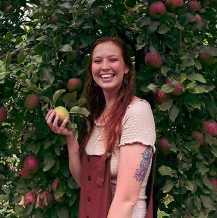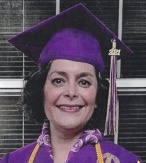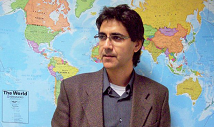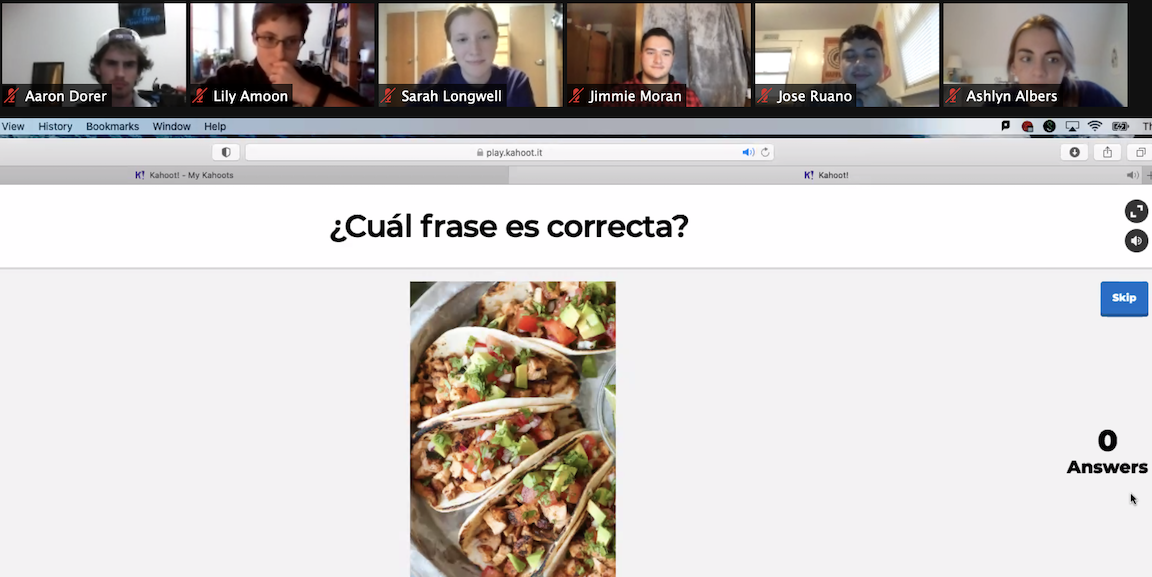Fall 2021 Graduating Students
Let’s get to know the three students graduating this fall with a BA in Spanish:

Rae Hanes
What programs have you completed here?
A BA in Spanish, a BS in Elementary Education, and a license in Teaching English to
Students of Other Languages (TESOL).
What are your plans after graduation?
I have accepted a teaching position at Cherokee Elementary School.
Tell us a meaningful Spanish-related story.
Spanish has literally surrounded me my entire life. To pick one story that encompasses
my experience is nearly impossible. One moment I remember that has shaped my perspective
on language learning is when my professor, Dr. Alberto Centeno-Pulido, mentioned that
we are a totally different person when we speak in another language. Many would think
this is ridiculous and that of course we are our authentic selves, just with different
words. But think: can you really express yourself the same outside of your native
language? Do certain words hold the same value in that language? Are concepts weighed
differently? That idea has mulled in my head for the past three years. When I speak
in English, I can naturally and almost elegantly choose many avenues of sentences
to convey my meaning. However, in Spanish my paths take different turns. I love how
abstract the slang I have learned can be. For example: the expression "Hacemos una
vaca,” which in direct translation is "We make a cow." English speakers may think,
"Okay, similar to the old saying 'having a cow' so maybe they made a big deal out
of something." But in Chile, this saying describes collecting a pot of money. I heard
this when I was at a carrete (party) and los pacos (cops) showed up. All the Chilenos
started passing around a bag. Everyone was dropping pesos chilenos inside. When they
said this phrase you can imagine my confusion. But how expressive is that? I can't
even think of a quick way to say this concept in English. The phrase doesn't make
any sense to my English conditioned brain, but the concept of it has never left me.
Another example is "Estoy pato," which translates to "I am a duck (temporarily)." I couldn't even begin to decipher this phrase's meaning. It means "I'm broke" in Chile. While being broke is not fun, for some reason this phrase makes it feel a lot lighter of a subject. In my experience, that was always the attitude surrounding the subject.
I have enjoyed learning a new language, and therefore understanding the attitudes and values of other cultures. I have also had the pleasure of bending my understanding of my own self expression. Using different words attached to new or blended concepts has completely transformed my perspective of my self. I originally thought that I would just learn to talk to others, but I learned more about the wordless meanings behind ideas and abstract happenings, and then connected that to what it means for myself. It’s something I could never learn through a mono-linguistic lense.
Okay, last example: the verbs saber vs conocer, “to know something” and “to know someone or be familiar with someone or something.” In English it's the same, but have you ever thought about how it is a different way of "knowing"? Really feel those words. Those are different concepts.
Any advice for students learning Spanish now?
STUDY ABROAD. Go somewhere where there is NO ENGLISH. It's scary, but it’s worth it.
Want a suggestion? La Universidad de Talca, Chile. Stay with other internationals.
Do it.

Megan O’Halloran
What programs have you completed here?
A BA in Spanish and a BA in International Studies with a minor in Communications
What are your plans after graduation?
Less than 2 weeks after graduating, I will be heading to Madrid to teach English as
a second language!
Tell us a meaningful Spanish-related story.
My freshman year, I was a Book Buddies volunteer at Smokey Mountain Elementary. In
my assigned class, there happened to be a student who had recently moved from Honduras.
The student knew very little English and had an extremely difficult time in school.
Luckily, I knew Spanish, so the teacher had both of us work one-on-one during each
of my classroom visits. It was really special experiencing how my ability to speak
Spanish helped someone feel more at home in such an unknown place.
Any advice for students learning Spanish now?
Learning a new language forces you to be vulnerable and can be a very humbling experience.
Let your walls down; growth and learning will follow.

Hilda Rico Tipton
What programs have you completed here?
BA in Spanish, BSW in Social Work
What are your plans after graduation?
I may apply for the MSW advanced standing program at WCU. I may apply for a job and
study part-time or I may change my major for my master's.
Tell us a meaningful Spanish-related story.
I had the opportunity to meet Gabriel Garcia Marquez during the presidential inauguration
of Vicente Fox. I hadn't read any of his books back then, but then I took the Cien
años de soledad (One Hundred Years of Solitude) class with Professor Mark Couture.
I told the professor that, and I found the class to be not only interesting but also
a lot of fun. I enjoyed interacting with Professor Jons and the students in the Hispanic
Cultures class. It was fun and I learned new things about the history of the Spanish-speaking
cultures and civilizations. Professor Lori Oxford has been my advisor, she is great
and I am proud to call her my friend. I love her.
Any advice for students learning Spanish now?
Do not be afraid or shy of speaking or writing in another language. Practice a lot,
and that will make it better. Seek the advice of your professors, because they are
great people to work with.
The Spanish Program at WCU is extremely proud of these students. Their hard work and dedication raises the bar for all of us!
¡Felicidades a las tres!

